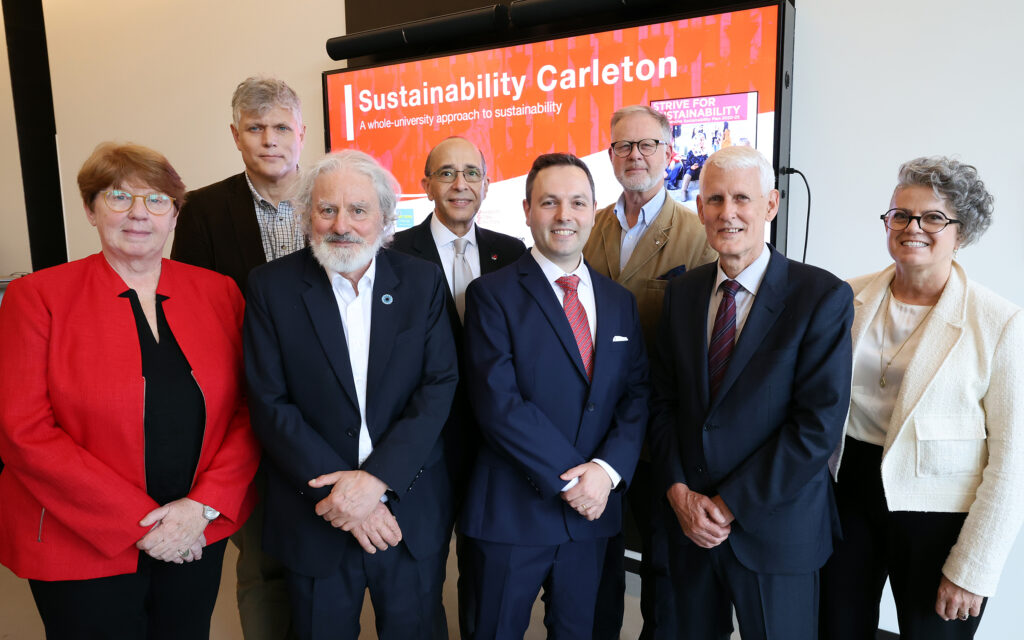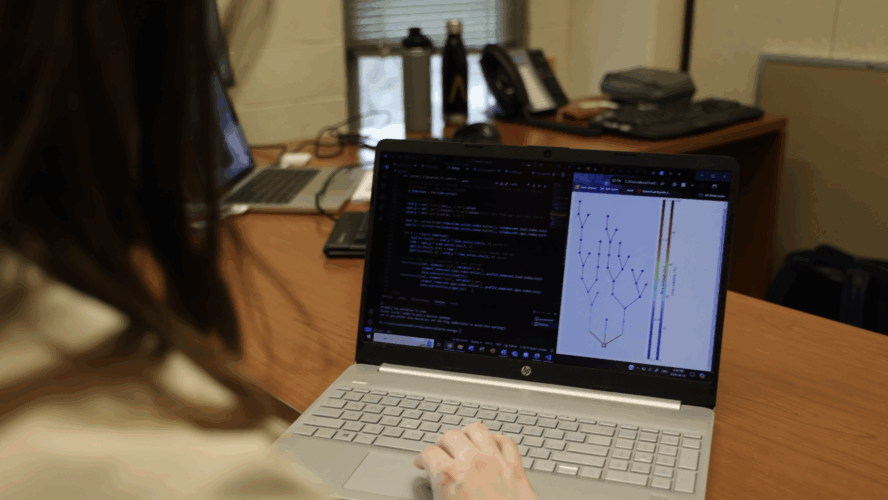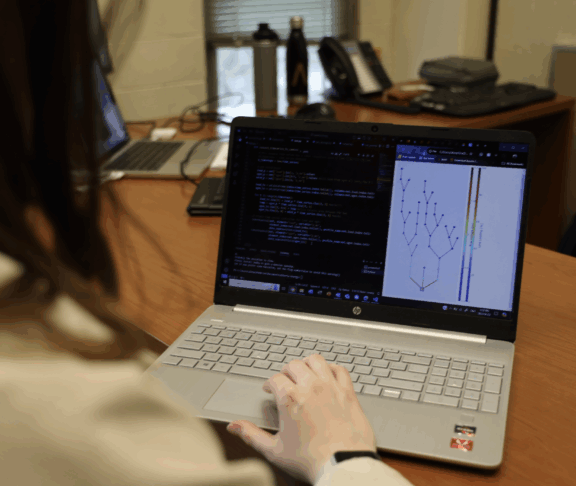Carleton researchers are driving net-zero innovation through strategic partnerships and interdisciplinary collaboration. Discover their impact as they work through the energy transition.
Dedicated researchers at Carleton are making strides toward a low-carbon or net-zero economy. The institution has positioned itself as a research-intensive interdisciplinary university, meaning you’ll find skilled people in many fields there, working on projects that complement a shared goal: furthering knowledge and discovery through co-creation — on campus and in the local community.
At Carleton, our researchers are advancing knowledge and discovery for a low-carbon economy through interdisciplinary co-creation on campus and in the local community. The continued funding and growth we are seeing in critical areas of sustainable energy, coupled with effective climate policy, is fuelling vital government and industry partnerships as we strive for a sustainable future.

Rafik Goubran
Vice-President (Research and International), Carleton University
Reorienting energy policy
One of these researchers is Daniel Rosenbloom, Assistant Professor in the Faculty of Public and Global Affairs, who holds the Rosamond Ivey Research Chair in Sustainability Transitions. The chair was established in 2024 and is funded by the Ivey Foundation, a community partner. It’s the first chair that’s explicitly dedicated to deepening scholarship and practice surrounding the growing field of sustainability transition in Canada.
Rosenbloom’s goal is to develop a world-class hub for research and policy around sustainability transitions. In June, he held the Net Zero Meets Trade Disruption workshop with a diverse group of leading voices from government, academia, and industry. During the intensive day-long event, participants identified trade-disruption scenarios and modelled how to handle them effectively using relevant data, policy, and tools.

Reducing industrial carbon and costs
Also on campus, you’ll find the Energy and Particle Technology Laboratory led by Reza Kholghy, Associate Professor in the Faculty of Engineering and Design and Canada Research Chair (CRC) in Industrial Decarbonization. “My research investigates technologies that could significantly reduce the carbon footprint and cost of manufacturing processes by heavy industries in Ontario,” he explains. One of the technologies is a small reactor that burns metals to produce usable products: metal oxides that can be reused and hydrogen gas, a pollution-free fuel.
Kholghy’s research is a prime example of successfully working across academic, governmental, and industrial lines. He received an Early Researcher Award from the Ontario government, which helps fund his work. He also works with international industry and key government partners, including the National Research Council Canada and Natural Resources Canada.
Creating viable, feasible change
Another example of the interdisciplinary work being done at Carleton is at the APEX (Alternative Pathways for the Energy Transition) lab, led by Faculty of Engineering and Design Associate Professors Ahmed Abdulla and Kristen Schell, who also holds a CRC in Uncertainty-informed Net Zero Energy System Modelling. There, they’re working to develop decarbonization pathways that are both “techno-economically viable” and “socio-politically feasible.”
Their work is a concentrated response to the century-defining challenge of climate change. At the lab, researchers are integrating public policy and behavioural science to optimize the design and deployment of engineered energy systems.
Carleton: advancing low-carbon knowledge and practice
The wide range of disciplines and partners involved demonstrates Carleton’s far-reaching commitment to approaching sustainability issues from every angle, and not just within the bounds of the university. It shows in its participation in the Net Zero Challenge. Carleton is a bronze-tier participant and the only university involved in the Government of Canada initiative. The commitment is also evident at Efficiency Canada, an organization that’s housed in Carleton’s Sustainable Energy Research Centre. The centre brings together academic researchers, industry, and governments to advocate for public policies that move us toward a more energy-efficient future.
Visit research.carleton.ca to see Carleton’s latest research developments.




